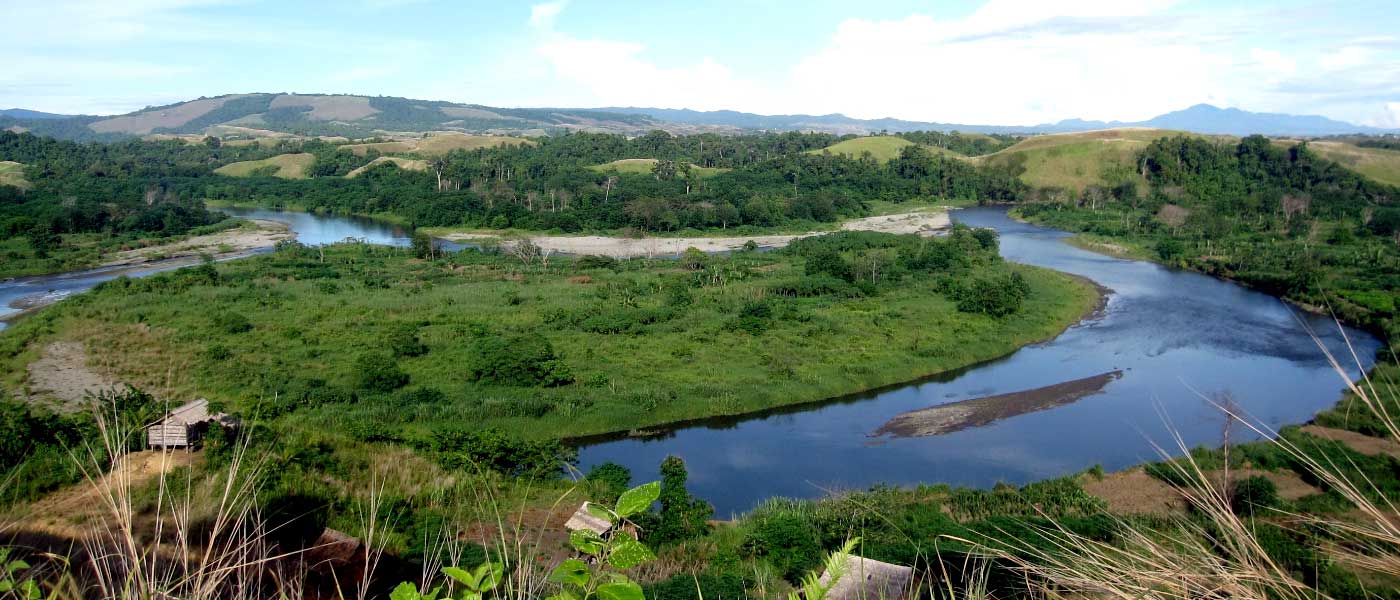
Pavan Sukhdev on markets of the future
Opinion + AnalysisBusiness + Leadership
BY The Ethics Centre 20 SEP 2021
Pavan Sukhdev is an environmental economist whose field of studies includes green economy and international finance. Pavan sat down with The Ethics Centre’s Dr Simon Longstaff to chat about the future of business sustainability.
Pavan Sukhdev is considered a true pioneer of sustainability. His business background champions the fusion of finance and economics with sustainability and responsible management. So how did a person interested in banking, finance and economics come to have a particular passion for the sustainability agenda?
Pavan says he owes it all to his upbringing. “I think the cultural upbringing of a child in India, in family, in networks which are community-heavy and community-oriented, never too far from nature – because India is a pretty wild place if you just care to step a few kilometres out from wherever you are – I think these things create a sense of understanding of a world that is not just an urban world, and not just a markets world.”
Pavan’s perspective on markets and value shifted drastically after taking up a job in Singapore with Deutsche Bank, when a conversation with a friend prompted him to realise that what people value – relationships, family, nature – doesn’t trade in markets. And yet our society is so mesmerised by the magic of markets that, if something doesn’t have a price, it doesn’t have value to us. He started doing research on environment economics and wrote a piece for the Economic Times in India, which helped him find a few kindred spirits at Deutsche Bank.
“I came to a point where I thought, someone needs to do something about this economic invisibility of nature.”
It was in this marriage of markets and the invaluable asset of the natural world that Pavan felt he had found his calling. He recounts a story about one evening when he was driving home from work, daydreaming about an idea for a green accounting project for Indian states. He drove past a roadside sign with a quote from Gandhi, which read: Find purpose; the means shall follow.
The message hit him “like an accident”, and Pavan called up some influential friends who, to his delight, were all very willing to help him set up his project. Four friends started working on the side-project and within a few years they had cracked it, he says. “We actually created the world’s first set of complete green accounts for the entire Indian Union of 28 states.”
While there were a number of his colleagues at Deutsche Bank at the time who quietly wondered what he was doing, Pavan is optimistic that in the years since perceptions and attitudes towards valuing the environment have changed, so much so that it has become the mainstream.
AUDIO: Listen to Pavan’s story about realising his environmental vision.
“I believe companies are not merely machines to make money for shareholders, they should have purpose. In fact, they should begin with purpose and then define their path to profitability. And these ideas would have been crazy 10, 15, 20 years ago, but they’re not anymore.”
Pavan on the corporations of the future.
“I see the corporation and its ability as similar to that of a species. A species evolves in response to its environment as the environment changes. The strong who are able to cope with that environment survive and the others die away and that creates evolution. And I see that corporations will move in that kind of direction. So the question is, what are we changing in the environment of the corporation in terms of policies, prices, and institutions that are going to create the new corporation?
AUDIO: Listen to Pavan’s ideas about how corporations need to evolve to survive.
Organisations to watch in the sustainability space:
- Capitals Coalition – a global collaboration redefining value to transform decision making.
- The Social and Human Capital Coalition – a global collaboration that brings together leading organisations to harmonise decision-making processes around social and human capital.
- The Impact Management Project – a forum for building global consensus on measuring, managing and reporting impacts on sustainability.
- The Value Balancing Alliance – enabling decision makers to act consciously.
Pavan on the markets of the future.
“Through focusing on the economic invisibility of nature and the fact that our decision-making as policy makers or business people – and these are the two largest, most powerful decision-making groups around the planet – tends to ignore what is economically invisible, has led me to understand that there’s a lot more that we ignore. We ignore human capital. So we will, for instance, account in the GDP for the cost of building and running universities, teacher salaries, and such like, but we will not account for what’s put in as a result of those teachers and those universities and the creation of human capital. And the ability to leverage [human capital] and generate future income and so on is massive.”
AUDIO: Listen to Pavan’s ideas on how to value human capital.
Pavan’s advice for leaders:
- Find purpose; the means shall follow.
- Our values become our destiny.
- Put effort into trying to discover what you’re on this earth for.
- Try to understand, appreciate and express your values, and try to accept them.
AUDIO: Listen to the full podcast discussion with Pavan.
Pavan Sukhdev is an environmental economist whose field of studies includes green economy and international finance. He was the Special Adviser and Head of UNEP’s Green Economy Initiative, a major UN project tasked with demonstrating that the greening of economies is not a burden on growth but rather a new engine for growing wealth, increasing decent employment, and reducing persistent poverty.
This episode was made possible with the support of the Australian Graduate School of Management, in the School of Business, at the University of New South Wales. Find out more about other conversations in the Leading with Purpose podcast.
Get more articles and podcasts like this by signing up to our Professional Ethics Quarterly newsletter here.
Ethics in your inbox.
Get the latest inspiration, intelligence, events & more.
By signing up you agree to our privacy policy
You might be interested in…
Opinion + Analysis
Business + Leadership
Between frenzy and despair: navigating our new political era
Opinion + Analysis
Business + Leadership, Politics + Human Rights, Relationships
Tim Soutphommasane on free speech, nationalism and civil society
Explainer
Business + Leadership
Ethics Explainer: Social license to operate
Opinion + Analysis
Business + Leadership, Climate + Environment, Society + Culture




